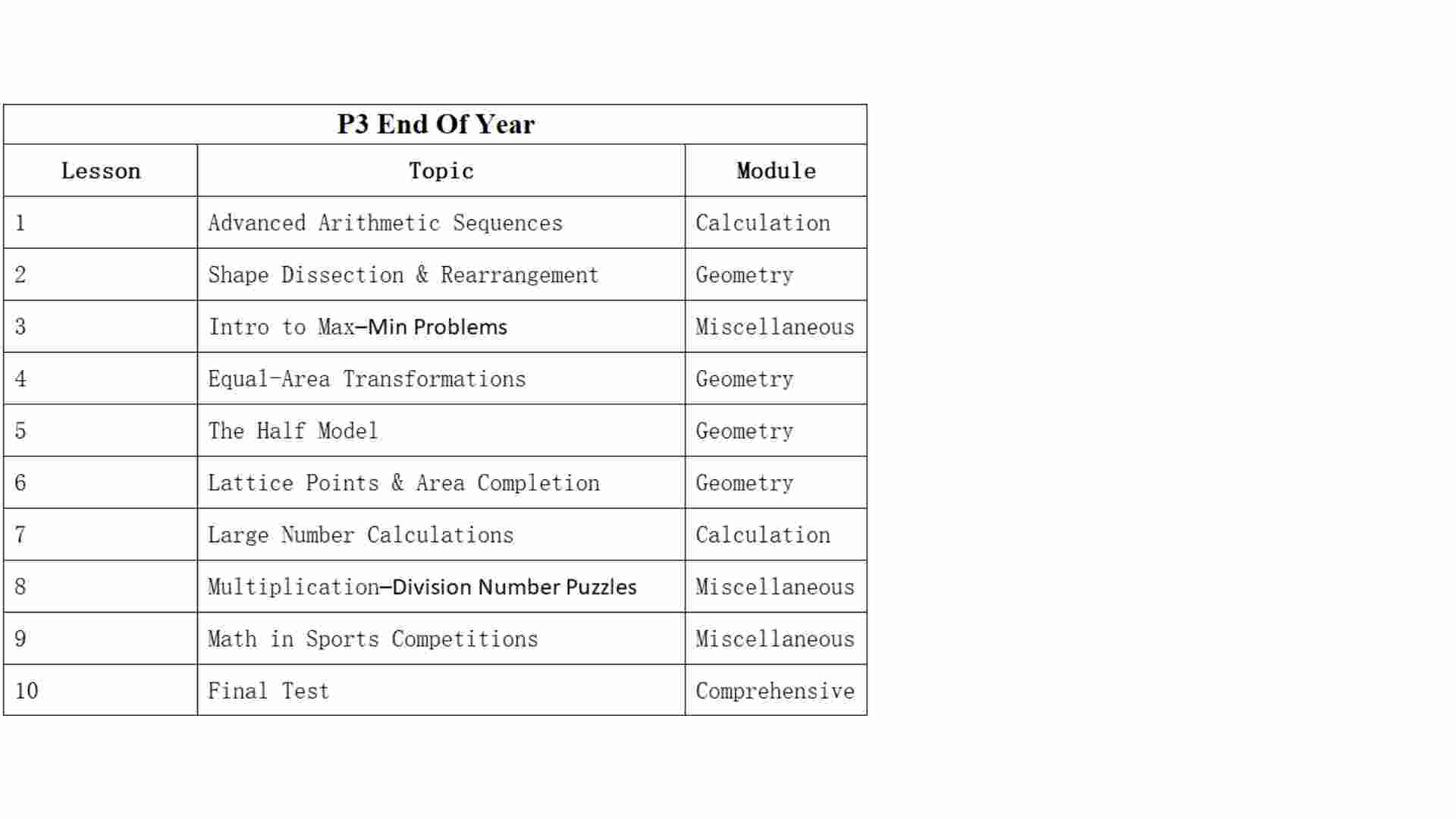本帖最后由 Nora老师 于 2025-10-25 18:47 编辑
From GEP to Math Olympiad Seminar Recap: Should P4 Students Learn Math Olympiad?
Every year after the GEP exam ends, many parents begin to think about their child’s next learning direction. Every year after the end of GEP, many parents will start to consider the next step in their child's learning journey. Parents whose children qualified for GEP often worry about whether they can adapt to the new academic pace, while those who did not make it into GEP fear their child falling behind.
One common question arises: "Should my child learn Math Olympiad?"
To address this, Tr. Boqian from Kangaroo Study held a seminar for P3 parents on 25 October, titled [2026 P4: From GEP to Math Olympiad]. The session aimed to help parents understand the true value of Math Olympiad in the growth of their child.
When the seminar started, the venue was filled with parents! They listened attentively to Tr. Boqian, creating a focused yet lively atmosphere.
1. Clearing Misconceptions: Understanding Math Olympiad
Many parents may believe that primary-level Math Olympiad questions go beyond the scope of the primary syllabus and start testing secondary-level content. However, Tr. Boqian explained that this is a common misconception.
In essence, primary Math Olympiad learning is not about advanced content, but about mastering structured problem-solving techniques built upon familiar primary concepts. Without exposure to these techniques, questions may seem extremely difficult; but once a student grasps the concepts and methods behind them, they can apply those strategies flexibly across different problem types.
Tr. Boqian highlighted two defining features of Math Olympiad learning: A. Many question types, but a fixed testing scope; B. High difficulty, which lies in applying the right problem-solving approach.
The true challenge does not lie in the knowledge itself, but in whether students can transfer and apply what they've learned to new contexts.
2. The Value behind Math Olympiad So, what exactly do children gain from Math Olympiad learning? And what should parents focus on in this journey?
Tr. Boqian emphasized that the true value of Math Olympiad lies beyond medals and awards. While winning prizes can provide motivation and a sense of achievement, the greatest benefits come from the thinking habits and learning qualities developed along the way.
Through tackling challenging problems, students gradually develop good learning habits, including effective listening, labelling of keywords, reviewing mistakes systematically and asking questions. Each cycle of trial and reflection builds their confidence and resilience in the face of difficulties.
He also shared that many students who once learned Math Olympiad continue to demonstrate stronger independent learning and problem-solving skills in secondary school and beyond. This illustrates how the process of learning Math Olympiad is far more valuable than Math Olympiad itself!
3. How to Learn Math Olympiad Effectively? What makes Math Olympiad difficult? And how can students truly master it?
Addressing the 2 features of Math Olympiad: 1) Many question types, and 2) High difficulty level, Tr. Boqian shared two respective approaches for parents.
First, to tackle the wide variety of question types, it is crucial to understand the scope and build a strong foundation. He guided parents through the focus areas of major competitions such as NMOS, RMO, and APMOPS, and showed how Kangaroo Study’s P4 Semester 1 course is structured to help students build a targeted, systematic knowledge framework -- by focusing on high-frequency topics and gradually exploring basic to advanced questions.
Second, on the challenging difficulty level, students have to learn, practise consistently, and review regularly. Learning new concepts is only the first step; consistent practice and reflection are what turn knowledge into real ability.
At the end of the seminar, Tr. Boqian spoke about the influence of positive role models in a child’s growth. He shared stories from his own learning journey, recalling how the encouragement and inspiration he received from others kept him motivated through challenges.
He encouraged parents to focus not just on results, but on their children’s mindset and confidence by helping them build a love for learning that lasts.
4. Parent Interaction and Feedback
Throughout the seminar, parents were seen actively taking photos of the slides and jotting down key insights.
After the session ended, many parents stayed behind to discuss their children’s learning progress with Tr. Boqian and seek personalized advice.
In their feedback to Tr. Boqian, many parents expressed gratitude as they were able to better understand the value of Math Olympiad and were very inspired by Tr. Boqian's story.
In the closing segment of his seminar, Tr. Boqian also announced a P3 Open Class [Discover Creative Thinking in Math] that will be taking place soon, where students will explore interesting ways of thinking in the world of Mathematics. Details are as follows:
Date: 2 November 2025 (Sunday) Time: 10:00 AM - 11:00 AM Format: Offline Venue: Grantral Mall #02-12, 601 MacPherson Rd, Singapore 368242 Registration: Please register through the KangarooStudy App (search “KangarooStudy” in the App Store).
Kangaroo Study’s P3 Year-End Holiday Classes and P4 Semester 1 Courses are open for registration! The courses are designed to help students master key problem types step by step, starting from foundational models, to build solid thinking skills and prepare for deeper Math Olympiad learning ahead.
Course Syllabus are as follows:

For more information or inquiries, please contact Tr. Boqian:
Parents are also welcome to join our P3 Study Group to receive the latest updates, study resources, and event announcements!

|